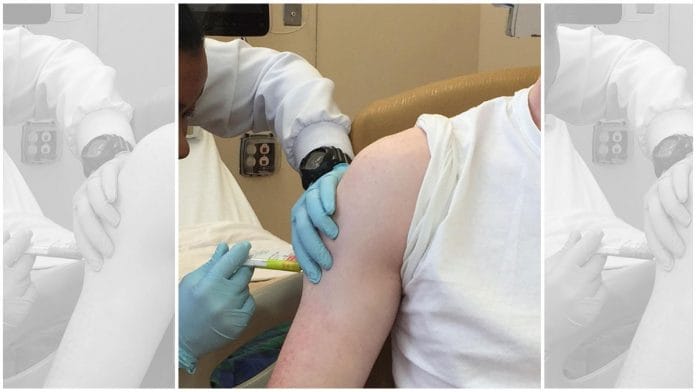New Delhi: The Indian Council of Medical Research (ICMR) is planning to develop sites for phase I clinical trials at adequately equipped government medical colleges and institutes.
The premier health research body has, via a public notice issued on 9 June, invited proposals from institutions willing to be a part of the programme. According to sources in the ICMR, the move comes after the cabinet secretary asked ICMR director general Dr Balram Bhargava — who is also secretary, Department of Health Research — to work on this as a priority.
A phase I clinical trial is the first time a product is used on humans to check whether it is safe, following successful trials in animals.
The Covid-19 pandemic has highlighted the importance of speedy clinical trials, said sources at the ICMR, adding that currently, there are hardly any phase I clinical trial sites in the public sector.
The size of the sample is usually small and only healthy subjects are enrolled for phase I trials. But because the molecule is being tested on humans for the first time, there are chances of untoward occurrences or medical emergencies that need to be handled without delay. That’s why the availability of appropriate infrastructure for the treatment or resuscitation of a trial subject is an important criterion for phase I clinical trial sites.
“There are hardly any phase I clinical trial units currently in the public sector. We have only just started working on this and have drawn up the essential criteria,” a senior scientist at the ICMR told ThePrint on condition of anonymity.
“The cabinet secretary had asked Dr Balram Bhargava to work on this. Currently, all the phase I clinical trial units in the country are in the private sector. It’s important to have these units at government institutes because the private sector will work on a molecule based on the probability of profit, not public health needs,” the scientist added.
During the pandemic, the ICMR had partnered with Bharat Biotech for the development and trials of Covaxin, which was developed from the SARS-CoV-2 virus isolated by the National Institute of Virology, Pune.
The ICMR’s 9 June notice read: “The Indian Council of Medical Research (ICMR) Hqrs, New Delhi, aims to develop centres for phase I clinical trial consisting of medical colleges/ institutes across the country. The centres will function as standalone facilities capable of effectively executing phase I clinical trials of the highest quality.”
“ICMR will provide technical, financial, and administrative support. ICMR plans to have MoUs with universities/ institutes/ private organisations to identify and evaluate investigational products/ lead molecules through these centres for phase I clinical trial,” the notice further said.
Also Read: Cancer ‘disappears’, every patient in remission — New York drug trial shows astonishing results
Facilities required for trial sites
The senior ICMR scientist quoted earlier described the necessary facilities that participating institutions must have. Important criteria include the wherewithal for cardiopulmonary management, expertise to tackle allergic reactions, expert handling of fluid management, and resuscitation facilities.
Other criteria include a minimum space of 500 square feet for three beds, alarms in all areas likely to be occupied by the trial subjects, toilets, showers, a recreational area, up-to-date equipment calibration certificates, an emergency trolley, and facilities for continuous monitoring such as ECG, pulse oximetry and measuring vital signs such as blood pressure, heart rate and temperature.
Apart from the availability of physical infrastructure (including a specific kind of bed used in hospitals), institutes also have to meet the criteria for trained manpower, according to the ICMR notice.
Furthermore, they need to have standard operating procedures for round-the-clock handling of common medical emergencies like syncope (temporary loss of consciousness), hypotension, anaphylaxis, cardiac arrest, and immediate maintenance of life support, as well as the transfer of participants to intensive care when required.
(Edited by Gitanjali Das)
Also Read: Sickle cell disease could have a cure soon, gene therapy shows good results in clinical trial






